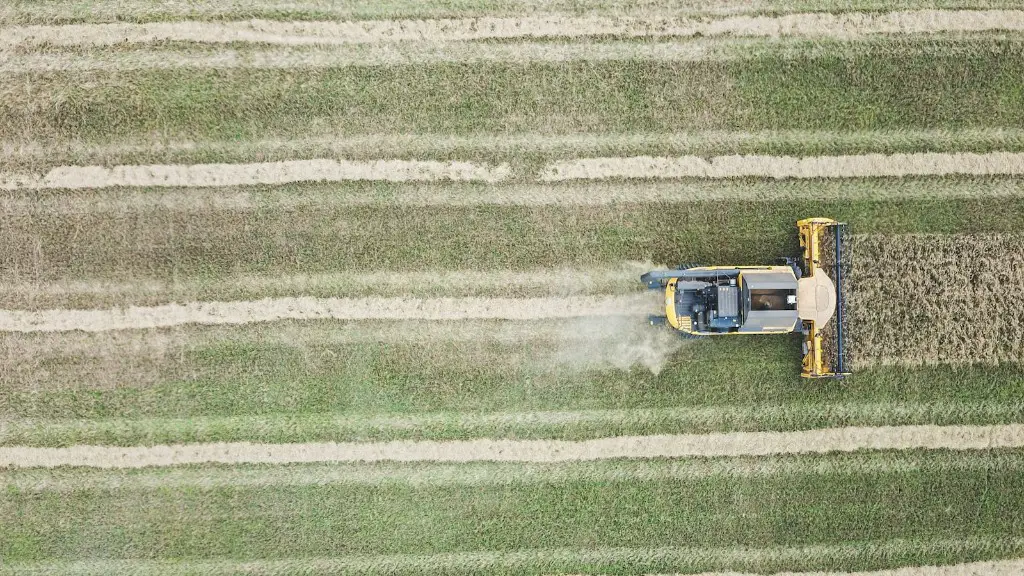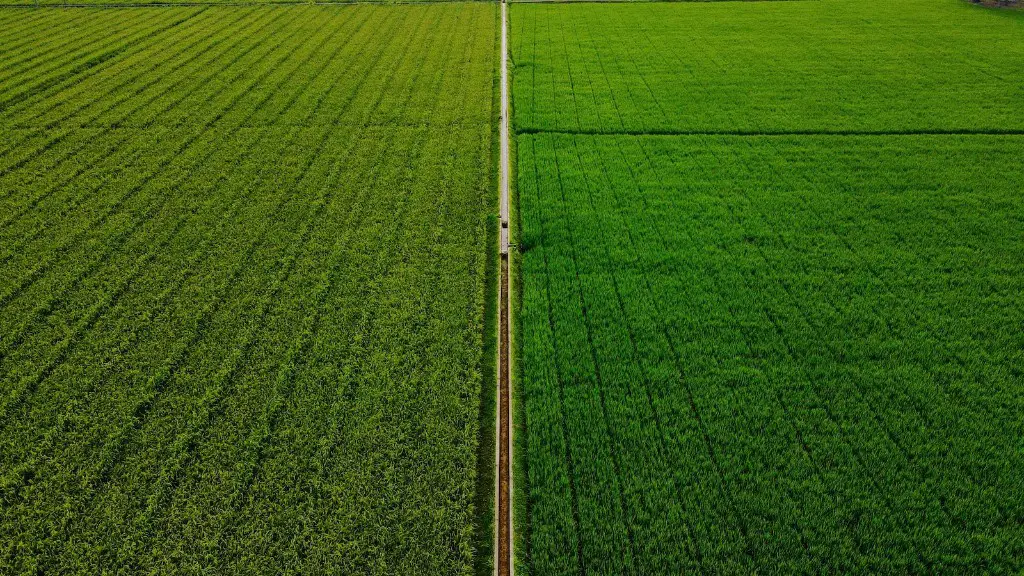The concept of sustainability is important to agriculture for a number of reasons. First, agriculture is the primary source of food for humans and other animals, and the sustainability of our food supply is essential to our survival. Second, sustainable agriculture practices can help to conserve natural resources, such as water and soil, which are essential to agricultural production. Finally, sustainable agriculture can help to mitigate the effects of climate change, which is a growing threat to agricultural production worldwide.
Sustainability is important to agriculture for a number of reasons. First, sustainable practices can help to ensure that farmers have a consistent and reliable source of income. Second, sustainable agriculture can help to protect and improve the environment, which is essential for the long-term viability of agriculture. Finally, sustainable practices can help to ensure that the food supply is safe and nutritious for consumers.
How does sustainability affect agriculture?
When agricultural operations are sustainably managed, they can help preserve and restore critical habitats, help protect watersheds, and improve soil health and water quality. WWF is working to identify and implement better management practices for agriculture that can help make these positive impacts.
The goals of sustainable farming are to provide abundant, accessible, wholesome foods while ensuring the health of the land, practicing the wise use of resources, and generating economic stability for farmers, farmworkers, and farming communities. In contrast, the goals of industrial farming are to produce large quantities of food at a low cost, regardless of the environmental or social costs.
What does sustainability mean in agriculture
Sustainable agriculture is a type of agriculture that focuses on producing food and crops in a way that doesn’t damage or deplete the natural resources required to produce those food and crops. This means using methods that conserve water and soil, and that don’t pollute the air or water. It also means using renewable resources, such as solar power, rather than non-renewable resources, such as fossil fuels.
Sustainable agriculture is an important part of the solution to climate change. It can help to reduce the impact of agriculture on the environment by reducing greenhouse gas emissions, water use, and soil erosion.
How sustainable agriculture helps the farmers?
Sustainable agriculture is a great way to produce food while protecting the environment. By using less hazardous pesticides and fertilizers, farmers can help keep communities safe and healthy.
Sustainability is based on a simple principle: Everything that we need for our survival and well-being depends, either directly or indirectly, on our natural environment. Agriculture contributes directly to sustainable stewardship of the land, air and water. Agricultural production is the most direct way in which humans interact with the natural environment. It is also the foundation of our food system, which in turn supports our health and wellbeing.
Good agricultural practices can help to protect and improve the natural resources that we rely on, including the soil, water and air. They can also help to mitigate the impacts of climate change. In order to be truly sustainable, agriculture must be economically viable and socially just, as well as environmentally sound.
What are 4 sustainable agriculture practices?
There are many ways to make farming operations more energy efficient, including using more efficient equipment and practices, and using renewable energy sources. Decreasing emissions of air pollutants and greenhouse gases can be achieved by using cleaner burning fuels, reducing waste, and practicing conservation tillage. Creating habitats for pollinators and beneficial insects can help to increase crop yields and improve pollination services. Ensuring welfare of farm animals is important for their health and productivity, and also provides space for the respectful coexistence with native wildlife.
The farming industry plays a vital role in protecting and enhancing the environment and natural resources.Farmers are uniquely positioned to protect and improve the environment and contribute to the well-being of the community.
Farming operations can have a significant impact on the environment and natural resources. By taking steps to protect the environment and natural resources, farmers can help to ensure the continued viability of their operations and contribute to the economic well-being of their community.
By producing high-quality, safe food, farmers can also contribute to the well-being of the community. Producing safe food requires that farmers have a good understanding of food safety and quality standards. Farmers who produce safe food can help to protect the health of the community and contribute to the economic viability of the food industry.
What are two advantages of sustainable farming
There are many benefits to sustainable agriculture, including preventing farm pollution, improving soil health, promoting biodiversity, conserving water, and ensuring the environment is not depleted for future generations.
There are many sustainable agriculture practices that farmers can adopt to improve the health of their soils and increase the efficiency of their operations. Some of these practices include rotating crops, planting cover crops and perennials, reducing or eliminating tillage, and adopting agroforestry practices. By managing whole systems and landscapes, farmers can create more diverse and productive ecosystems that are better able to withstand the challenges of a changing climate.
What is an example of sustainable agriculture?
No-till farming and other methods of reducing tillage can have numerous benefits for farmers. Such practices build soil organic matter, reduce energy costs, control pests, and boost income. When properly implemented, they can result in more efficient production and increased profitability.
The 5 key principles of sustainability for food and agriculture are:
1. Increase productivity, employment and value addition in food systems.
2. Protect and enhance natural resources.
3. Improve livelihoods and foster inclusive economic growth.
4. Enhance the resilience of people, communities and ecosystems.
5. Adapt governance to new challenges.
How does sustainable agriculture help the economy
Since the 1960s, agricultural productivity growth has helped to reduce poverty, increase food security, and decrease land expansion and associated biodiversity loss. Agricultural productivity growth has also played a role in mitigating greenhouse gas emissions by helping to improve economic growth and by putting money in farmers’ pockets, which in turn boosts rural economies.
Sustainability has become an increasingly important topic in the corporate world as organizations strive to minimize their impact on the environment. A sustainable organization takes a holistic approach to its operations, taking into account everything from manufacturing to logistics to customer service. By improving the efficiency of its operations, a sustainable organization can save money, reduce its impact on the environment, and improve the quality of its products and services.
What is the key to sustainable agriculture?
In sustainable agriculture, the goal is to reduce the input of external energy and to substitute non-renewable energy sources with renewable sources (eg, solar and wind power, biofuels from agricultural waste, or, where economically feasible, animal or human labor). This approach can help to reduce the environmental impact of agriculture, as well as the reliance on fossil fuels.
Crop rotation should be practiced to ensure healthier soil and improved pest control methods. This will also promote diversity. Intercropping and growing cover crops prevent soil erosion and also help replenish nutrients along with minimising weeds. Managing irrigation to reduce runoff is another practice that helps prevent soil erosion.
Warp Up
Sustainability is important to agriculture for a number of reasons. First, sustainable practices help to conserve and protect our natural resources, such as water and soil. Second, sustainable agriculture helps to ensure that we can continue to produce food for future generations. Third, sustainable agriculture helps to mitigate the effects of climate change by reducing greenhouse gas emissions. Finally, sustainable agriculture supports the livelihoods of farmers and rural communities.
Sustainability is important to agriculture because it is essential to the long-term health of our planet. Agriculture is a major driver of deforestation, water depletion, and soil degradation – all of which impact the environment in a negative way. By implementing sustainable agricultural practices, we can help to mitigate some of these negative impacts and help to ensure that our planet remains habitable for future generations.




